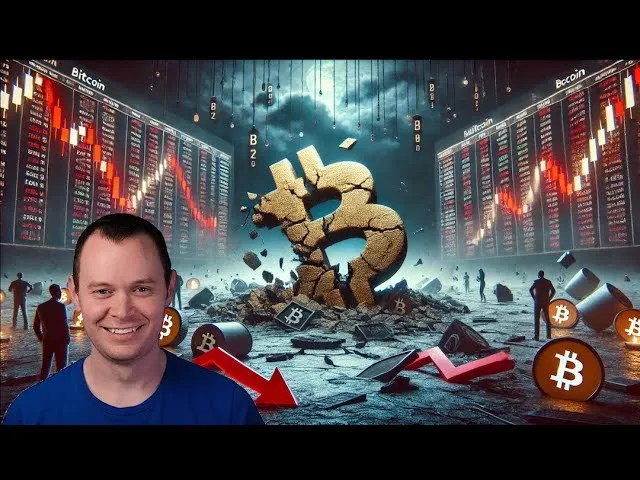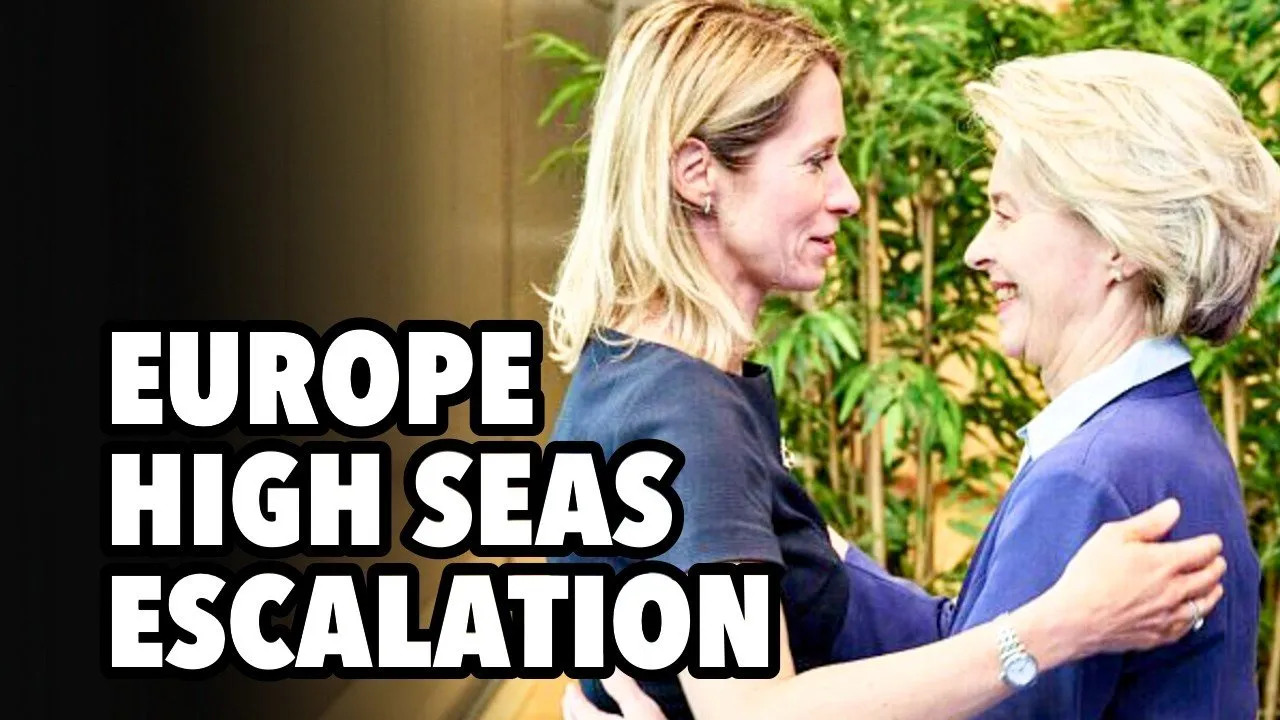Table of Contents
Konstantin Kisin, Soviet-born comedian and author, reveals how today's progressive movements mirror dangerous authoritarian tactics from his homeland, arguing that cultural warfare weakens the West against foreign adversaries.
Soviet immigrant Konstantin Kisin warns that Western "woke culture" employs totalitarian tactics that leave democracies vulnerable to authoritarian threats from Russia and China.
Key Takeaways
- Political correctness originated in Soviet Union and Maoist China to enforce party orthodoxy, not promote kindness
- Twitter's "struggle sessions" requiring users to delete tweets mirror Soviet punishment mechanisms exactly
- Western societies risk appearing weak and divided to foreign adversaries through internal cultural conflicts
- Immigration should be modest, democratically chosen, and merit-based rather than unlimited or completely restricted
- Peak woke may have occurred around 2020, but institutional momentum continues driving progressive policies forward
- Russia and China exploit Western cultural divisions through deliberate information warfare and bot campaigns
- Strong, unified Western societies have nothing to fear from authoritarian regimes if they maintain cultural confidence
- Identity politics fragments national cohesion by prioritizing ethnic loyalty over shared citizenship and common good
- Current progressive movements function as secular religion with utopian goals that ignore human nature's constraints
Timeline Overview
- 00:00–15:23 — Twitter's Ideological Enforcement: Peterson and Rubin bans reveal how social media platforms mirror Soviet "struggle sessions," requiring users to delete factually accurate tweets about transgender individuals to restore access
- 15:23–32:45 — From Soviet Collapse to Western Success: Kisin's journey from communist childhood warnings about sharing family conversations, through father's dramatic rise to minister and forced exile under false identity, to British boarding school cultural shock
- 32:45–48:17 — Immigration Philosophy and Democratic Consent: Merit-based systems like Australia's work best, combining skills requirements with democratic choice about numbers, while distinguishing refugee assistance from permanent demographic change
- 48:17–67:34 — Moderate Politics and Peak Woke Analysis: Rejecting fixed ideologies for contextual responses, examining whether progressive movements peaked in 2020 or merely shifted from elite opinion to institutional momentum
- 67:34–89:21 — Race, Context and Demand-Supply Problems: Personal racism experiences in Britain reveal tiny minority problem, while diversity industry creates financial incentives to expand definitions and exclude majority groups from opportunities
- 89:21–END — Information Warfare and Western Resilience: Bezmenov's warnings about Soviet cultural subversion tactics now employed through social media bots and identity politics, with prescription for strengthening rather than fearing authoritarian adversaries
Political Correctness: A Soviet Import
The concept many associate with campus sensitivity training has darker historical roots. Political correctness emerged in the Soviet Union and later flourished in Maoist China as a tool for enforcing party orthodoxy. The system never aimed to promote politeness or respect.
- Political correctness told people their factually correct statements were "inconvenient to the party line" and therefore forbidden
- Soviet authorities required public confession sessions where citizens admitted ideological errors before receiving punishment
- Twitter's suspension process mirrors these "struggle sessions" by demanding users acknowledge wrongdoing and delete offending content
- The terminology deliberately conflates speech with violence to justify expanding censorship beyond traditional legal boundaries
- Modern platforms like Twitter function as ideological enforcement mechanisms rather than neutral communication tools
- Conservative politicians now embrace "violent speech" concepts, showing how thoroughly these frameworks have penetrated mainstream thinking
The parallel becomes especially clear when examining specific cases. Dave Rubin received a Twitter suspension for referencing Elliott Page's former name, with the platform citing rules against "promoting violence" for what constituted stating biographical facts.
This represents a profound shift in Western discourse control mechanisms. Traditional censorship required state apparatus and clear legal frameworks. Modern ideological enforcement operates through private platforms using deliberately expansive interpretations of harm. The genius of this system lies in its self-reinforcing nature: users internalize censorship by anticipating what might trigger punishment, creating what scholars term "anticipatory conformity." This psychological mechanism proved central to Soviet social control, where citizens censored themselves more effectively than any external authority could manage.
From Soviet Collapse to Western Boarding School
Growing up in the final years of the Soviet Union provided firsthand experience with authoritarian control. Kisin's family navigated the treacherous transition from communism to capitalism, experiencing both dramatic wealth and devastating loss.
- Parents instructed nine-year-old Kisin never to share home conversations at school because political dissent remained dangerous
- Father transformed from biochemical engineer to minister in Boris Yeltsin's government after capitalizing on post-collapse opportunities
- Family owned "Russia's biggest bank" during the chaotic privatization period of the early 1990s
- Political persecution forced father to flee Russia under false identity, abandoning successful career for twenty years
- Boarding school placement in Bristol at age thirteen represented parents' attempt to secure better future
- Cultural adjustment proved "brutal" but developed essential bicultural perspective and flexibility
The dramatic reversal of fortune—from government minister to exile—illustrated how quickly political winds could shift in unstable societies. This experience shaped Kisin's appreciation for Western democratic stability.
The broader significance extends beyond personal narrative to illustrate how authoritarian systems create perpetual insecurity even for those temporarily favored by the regime. Kisin's father succeeded during the chaotic privatization period precisely because institutional frameworks remained weak and connections mattered more than established procedures. However, this same institutional weakness that enabled rapid wealth accumulation also enabled rapid destruction when political winds shifted. The absence of rule of law cuts both ways: opportunities appear suddenly but disappear just as quickly when powerful actors decide to eliminate competitors.
This lived experience of institutional fragility explains Kisin's acute sensitivity to signs of Western institutional decay. Having witnessed firsthand how quickly prosperous, educated families could lose everything due to political persecution, he recognizes that Western legal protections and democratic norms represent precious achievements that require active defense rather than passive assumption of permanence.
Immigration: Merit, Democracy, and Pragmatism
Personal experience as an immigrant informs nuanced views on immigration policy that resist both open-border and closed-border extremes. The focus centers on democratic consent and practical outcomes rather than ideological purity.
- Modest immigration levels, democratically chosen by citizens, benefit societies through talent injection and cultural vitality
- Australia's merit-based system provides the optimal model: skills, education, law-abiding status, and legal entry requirements
- Illegal entry should result in automatic rejection, while legitimate refugees deserve temporary assistance near origin countries
- Most Ukrainian refugees prefer returning home after conflict ends rather than permanent relocation to distant nations
- Democratic wishes regarding immigration aren't reflected in actual policy implementation in US and UK
- Border security failures undermine public trust and fuel extremist reactions on both political sides
The key insight involves distinguishing between helping people in crisis and permanent demographic change. Temporary refuge assistance differs fundamentally from unrestricted permanent settlement without public consent.
The Peak Woke Debate: Momentum vs. Direction
Andrew Sullivan's argument that "peak woke" occurred around June 2020 raises questions about whether progressive movements are retreating or simply institutionalizing their gains through bureaucratic momentum.
- Thought leaders may privately doubt extreme positions like childhood gender transition while remaining publicly silent
- Institutional implementation continues despite elite skepticism, suggesting bureaucratic rather than intellectual momentum drives policy
- Sexualization of children and transgender ideology in classrooms continues expanding despite growing public resistance
- Supreme Court conservative decisions may trigger liberal backlash rather than peaceful adjustment to new legal landscape
- Pendulum metaphors assume eventual return to center, but cultural changes often solidify through institutional capture
- Predictions about social trends prove notoriously unreliable, especially during periods of rapid change
The challenge lies in distinguishing between surface-level opinion shifts among elites and deeper institutional transformations that operate independently of public sentiment or intellectual fashion.
Race, Context, and the Demand-Supply Problem
Britain's historical and global context reveals how prosperity and success can paradoxically generate increased grievance through what economists call the Tocqueville Paradox—rising expectations that outpace reality's capacity for improvement.
- Personal racism experiences included school bullying but represented tiny minority universally despised by mainstream society
- Britain and other Western nations offer minorities the best living conditions "in the entire history of our species"
- Demand for racism examples now exceeds actual supply, requiring constant expansion of definitional boundaries
- Diversity consulting has become a lucrative "racket" employing people with financial incentives to discover new problems
- Television presenter openly celebrated excluding white people from panel discussions as natural workplace attitude
- Natural hiring based on merit produces diverse workforces without artificial quotas or discrimination
The concern extends beyond individual incidents to systemic discrimination against majority populations, which could generate dangerous backlash when applied to countries that remain predominantly white.
The deeper analytical framework here involves what Kisin identifies as the "constrained versus unconstrained vision" from Thomas Sowell's work. The constrained vision accepts human imperfection and seeks workable compromises within existing limitations. The unconstrained vision pursues utopian perfection and refuses to accept that progress has limits or unintended consequences.
Current diversity initiatives reflect unconstrained thinking by assuming perfect equality of outcome is achievable and that any deviation indicates discrimination requiring correction. This creates what economists call a "ratchet effect" where each measure of progress simply resets the baseline for new grievances rather than providing satisfaction. The Tocqueville Paradox compounds this: as conditions improve objectively, subjective expectations rise faster, creating perpetual dissatisfaction despite unprecedented prosperity.
The television presenter's casual comfort with anti-white discrimination reveals how thoroughly these frameworks have penetrated institutional thinking. When discrimination becomes normalized within elite circles, it signals that ideological capture has reached the point where basic principles of equal treatment no longer apply universally.
Information Warfare: Bezmenov's Prescient Warnings
Former KGB agent Yuri Bezmenov's 1970s defection provided detailed warnings about Soviet strategies for cultural subversion that appear remarkably relevant to contemporary American divisions.
- Soviet Union deliberately supported movements that hated American society, regardless of their stated causes or moral legitimacy
- Racist Soviet regime funded black liberation movements not from principle but to destabilize American social cohesion
- Modern Russia continues using cyber warfare, social media bots, and cultural manipulation to amplify existing divisions
- China leverages economic influence through NBA and other institutions to shape Western self-perception as fundamentally racist
- Destroying family units, cultural loyalty, and religious faith were explicit Soviet destabilization objectives
- Identity politics encourages ethnic loyalty over national citizenship, fragmenting societies' capacity for collective defense
The strategy succeeds not by imposing external ideology but by amplifying existing internal conflicts until societies lose cohesion and confidence in their own legitimacy.
The sophistication of modern information warfare exceeds anything Bezmenov could have imagined in the 1970s. Social media algorithms naturally amplify divisive content because engagement metrics reward emotional responses over thoughtful discourse. Foreign adversaries need not create division; they merely need to identify existing fault lines and pour accelerant on them through coordinated bot networks, targeted advertising, and strategic content amplification.
The psychological impact operates at multiple levels simultaneously. Individual users experience constant outrage cycles that exhaust their capacity for reasoned political engagement. Community leaders find themselves forced to take increasingly extreme positions to maintain relevance within polarized environments. Democratic institutions lose legitimacy as citizens conclude that dialogue has become impossible and only power matters.
China's approach proves particularly insidious by leveraging economic relationships to shape cultural narratives. When American corporations self-censor to protect Chinese market access, they implicitly validate authoritarian values over democratic principles. This creates a feedback loop where Western institutions gradually adopt authoritarian assumptions about information control and ideological conformity.
Strengthening Western Resilience
Rather than fearing foreign adversaries, the focus should center on maintaining internal strength and cultural confidence. Barbarians always threaten successful civilizations, but strong societies easily repel such challenges.
- Western technological and military superiority remains overwhelming when societies maintain unity and purpose
- Roman legions succeeded because they represented coherent civilization worth defending, not superior individual warriors
- Democratic institutions function effectively when they respect citizen wishes and maintain legitimate authority
- Cultural self-hatred and internal division signal weakness that invites foreign aggression and exploitation
- Ukraine conflict demonstrated that Western resolve, when activated, can effectively counter authoritarian expansion
- Germany's nuclear power elimination and endless cultural debates represent the kind of distraction that encourages aggression
The prescription involves recommitting to Western civilizational achievements while honestly addressing shortcomings through democratic processes rather than revolutionary transformation.
Common Questions
Q: What is political correctness according to Kisin?
A: A Soviet-created system for enforcing party orthodoxy by labeling factually correct but politically inconvenient statements as forbidden.
Q: How does Twitter censorship relate to Soviet practices?
A: Both systems require public confession, admission of wrongdoing, and deletion of offending content before restoring privileges.
Q: What immigration system does Kisin prefer?
A: Australia's merit-based approach requiring skills, education, legal entry, and democratic consent for immigration levels.
Q: Has "woke" culture peaked according to the analysis?
A: Elite opinion may be shifting, but institutional momentum continues driving progressive policies regardless of intellectual trends.
Q: Why should the West not fear China or Russia?
A: Western societies possess overwhelming advantages when unified and confident in their cultural achievements and democratic institutions.
Western civilization possesses unprecedented prosperity, technological capability, and individual freedom that authoritarian regimes cannot match. The primary threat comes not from foreign adversaries but from internal cultural divisions that signal weakness and invite exploitation.
Conclusion
Kisin's analysis reveals how contemporary Western cultural conflicts mirror historical patterns of authoritarian subversion, not through deliberate conspiracy but through the exploitation of technological and social vulnerabilities that amplify existing divisions. The convergence of Soviet-style ideological enforcement mechanisms with modern social media platforms creates unprecedented opportunities for both domestic extremism and foreign manipulation. However, the solution lies not in fearing external adversaries but in rebuilding internal cultural confidence, democratic legitimacy, and institutional resilience. Western societies retain overwhelming advantages in wealth, technology, and individual liberty that become decisive when populations unite around shared values and democratic principles rather than fragmenting along identity-based lines.
Practical Implications
- Democratic Renewal: Ensure immigration policy reflects actual public preferences rather than elite ideology to rebuild trust in democratic institutions
- Educational Reform: Counter ideological capture in schools by requiring balanced presentation of historical context and civilizational achievements alongside legitimate criticisms
- Media Literacy: Teach citizens to recognize information warfare tactics, bot networks, and algorithmic manipulation that exploit psychological vulnerabilities
- Institutional Accountability: Demand transparency from social media platforms regarding content moderation decisions and foreign influence operations
- Cultural Confidence: Promote appreciation of Western democratic achievements while honestly addressing shortcomings through democratic processes rather than revolutionary transformation
- Moderate Coalition Building: Support voices from both left and right who prioritize national cohesion over ideological purity or partisan advantage
- Legal Frameworks: Develop regulations requiring disclosure of foreign funding for cultural and political organizations operating within democratic societies
- Civil Discourse Training: Invest in programs that teach conversation skills, critical thinking, and conflict resolution to counter polarization trends
- Economic Independence: Reduce dependence on authoritarian regimes for critical supply chains and cultural content distribution platforms




![Fidelity Just EXPOSED Crypto's Biggest Secret [Not What You Think]](/content/images/size/w1304/format/webp/2026/02/fidelity-2026-crypto-outlook-revenue-sharing.jpg)
